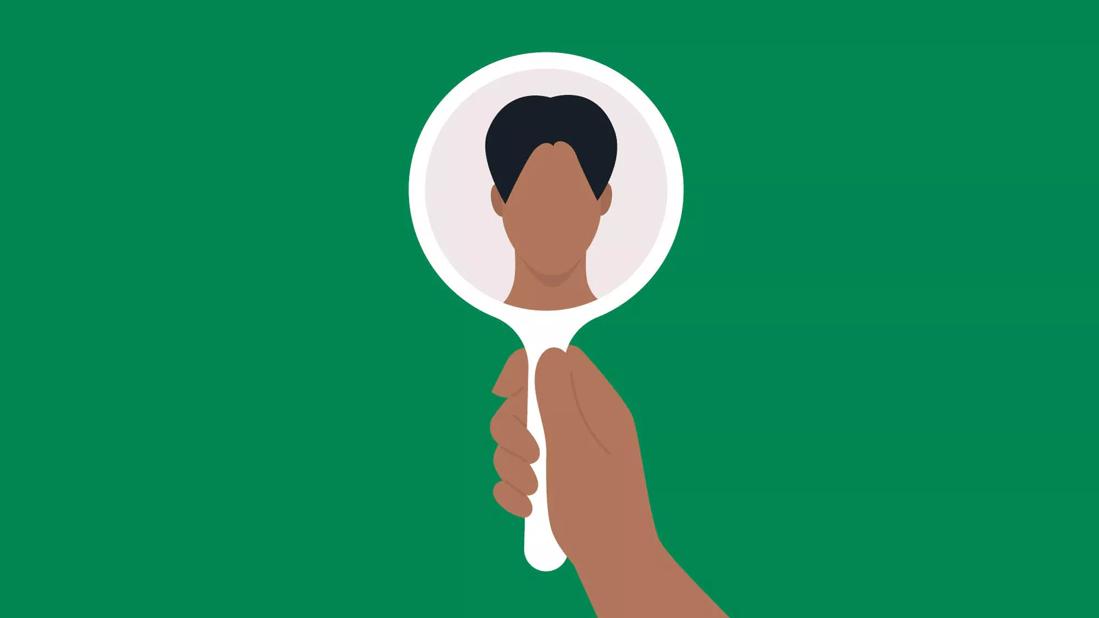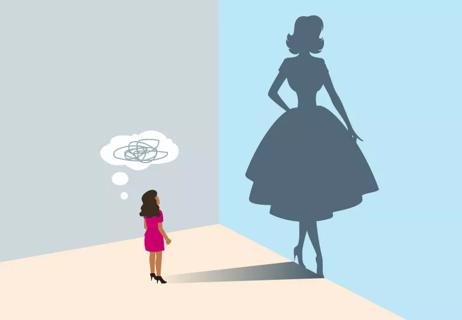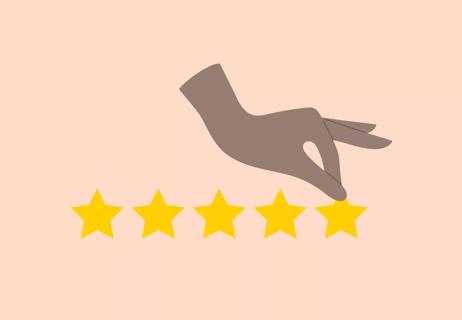Narcissistic personality disorder is a mental health condition, not an insult

Pop psychology has turned looking for narcissists into a national pastime. A quick visit to your search engine of choice will reveal article after article on “How to spot a narcissist,” as if they were rare antiques. Or Pokémon.
Advertisement
Cleveland Clinic is a non-profit academic medical center. Advertising on our site helps support our mission. We do not endorse non-Cleveland Clinic products or services. Policy
Once you’ve spotted the narcissists in your midst, the internet’s loaded with tips for living with them, leaving them and taking control away from them. Some of the searches that autofill on Google are downright disturbing: “How to manipulate a narcissist”? “How to make a narcissist fear you”? No thanks.
For whatever reason, narcissism is top of mind right now. So, we should probably know what the word actually means. We turned to clinical psychology fellow Brianne Markley, PhD, to learn about the symptoms of narcissistic personality disorder (NPD) and why calling people who fit the bill “narcissists” is a mistake.
Video content: This video is available to watch online.
View video online (https://cdnapisec.kaltura.com/p/2207941/sp/220794100/playManifest/entryId/1_eui2qrd6/flavorId/1_5f3sgelj/format/url/protocol/https/a.mp4)
“The word ‘narcissist’ gets thrown around a lot to describe folks who might exhibit signs of self-absorption or inflated ego,” Dr. Markley says. But narcissistic personality disorder (NPD) is a mental health condition that’s diagnosed by professionals.
NPD is a cluster B personality disorder, alongside borderline (BPD), antisocial (ASPD) and histrionic personality disorders (HPD). The common thread uniting these conditions: Tendencies that lead to inappropriate ways of thinking, feeling and interacting with others.
As is true for many mental health conditions, “We see these tendencies starting in adolescence or early adulthood,” Dr. Markley notes. “Then, they stay relatively stable over time and can lead to distress or impairment in functioning.”
Advertisement
Often, a person living with NPD will have no idea why they’re struggling with the so-called “basics” of life. And telling them it’s because they’re a “narcissist” isn’t helping. More on that later.
Just like other mental health conditions, you can only be diagnosed with NPD if you meet very specific criteria, as determined by a trained mental health professional.
“We use a set of criteria from the fifth edition of The Diagnostic and Statistical Manual of Mental Health Disorders, which we call ‘the DSM-5,’ to determine if somebody has NPD,” Dr. Markley explains.
“To be diagnosed with a personality disorder of any kind, an individual has to meet with a behavioral health specialist and complete a comprehensive clinical evaluation.”
According to the DSM-5, a person with NPD needs to demonstrate at least five of nine qualities in a wide range of situations. During the evaluation process, the mental health provider assesses and differentiates the criteria to ensure the diagnosis is accurate.
The nine criteria are:
If you’re hoping to identify NPD “in the wild,” understanding these characteristics is your best bet. But — as you’ll quickly realize — there’s a reason you need special qualifications to diagnose people. It’s more complicated than just ticking a box. Some traits that are common in people with NPD (like Peter Pan syndrome) aren’t on the list, and sometimes, the traits that are on the list present in unexpected ways, which is the case when somebody’s a covert narcissist.
We all know people who — despite having a list of accomplishments as long as your arm — have managed to stay humble. That isn’t the case for people with NPD. They’re often inclined to brag about who they are, what they have and the things they’ve done.
The DSM-5 is quick to note that this sense of superiority doesn’t have to be earned. In other words, a person with NPD might make up or exaggerate their achievements. They may even expect to be regarded as special without doing anything (personally or professionally) to distinguish themselves.
A lesser-known quality of NPD is holding oneself to unreasonably high standards. Dr. Markley says that happens, in part, because people with NPD tend to overestimate their abilities. In other words, a person with NPD often doesn’t realize their goals are unrealistic because they think they’re better than other people.
Advertisement
To use the DSM-5’s exact words, people with NPD often have, “A preoccupation with fantasies of unlimited success, power, brilliance, beauty, or ideal love.” Most of us have probably daydreamed about being rich, famous, powerful, loved or talented. But in the case of NPD, these flights of fancy are defense mechanisms.
According to Dr. Markley, there are two sides of the NPD coin: The grandiose side and the vulnerable side. And one can’t really exist without the other. Behind all the bravado, people with NPD tend to have very low self-esteem. Fantasies of having and deserving act like a shield. Keeping their head in the clouds makes it easier to square the person they believe they are with the person they actually are.
From the time we’re little, we all learn that each of us is unique and special in our own way. And it’s true! But for people with NPD, that idea becomes a bit distorted.
According to the DSM-5, people with NPD tend to believe that they are so unique and special that most people can’t understand them. That impacts their personal and professional lives because they feel that only very distinguished people or institutions are worthy of associating with them. In other words, they’re “high status,” and only want to interact with people they consider to be their social equals (or betters).
Advertisement
While it may make us blush, most of us want or need the occasional compliment or recognition to feel valued. For people with NPD, Dr. Markley clarifies that the need for positive reinforcement is much greater.
While people with NPD might not show it, they often experience intense feelings of inadequacy, self-doubt, emptiness and anxiety about how they’re perceived. That anxiety motivates them to seek the approval and praise of others. As part of their efforts to protect their self-image, they may fish for compliments, be hostile to constructive criticism and engage in attention-seeking behaviors.
Another common feature of NPD is a sense of entitlement. The DSM-5 describes entitled behavior as unreasonably expecting special treatment or compliance — a sense that the rules don’t apply.
The key word here is “unreasonable.”
There are certain circumstances where you can reasonably anticipate special treatment. It’s reasonable to expect a DJ to play your favorite song at your birthday party, even if it’s really unpopular. It’s not reasonable to expect that stinker to ring out at the club or over the airwaves of your local radio station.
The same goes for expecting compliance. It’s fair to expect good customer service from the barista at your neighborhood coffee shop. You can’t reasonably expect them to memorize your order or let you cut the other customers who are waiting in line.
Advertisement
When a person has an entitlement mindset, they spend a lot of time feeling disappointed, wronged and even angry. That, Dr. Markley says, can take a big toll on a person’s mental health. It’s sort of like seeing the world through a funhouse mirror. Each unmet expectation or perceived slight is a new curve in the mirror, adding to their distorted understanding of themselves and the world they live in.
According to the DSM-5, it’s common for people with NPD to take advantage of other people for selfish reasons. Sometimes, they use people on purpose, but it can also be an unconscious thing.
“That can be a really hard interpersonal tendency to manage,” Dr. Markley notes.
For example, many people with NPD are driven by a need for external validation. As a result, they might pursue friendships or relationships based on what a person can give them — like wealth or status — as opposed to who they are. They don’t necessarily know that’s how they’re choosing their friends, but it’s what’s happening.
Empathy is the ability to understand how other people feel and share in those feelings. Many individuals with NPD struggle with active listening because they aren’t naturally inclined to be interested in the people around them, Dr. Markley explains. Some either can’t or won’t recognize, understand and respond appropriately to other people’s emotions.
Lacking empathy can cause a person with NPD to say and do things that are extremely hurtful, without anticipating (or in some cases, caring) about how their actions are affecting others. They may even see being upset or highly sensitive as a sign of weakness.
Everybody struggles with “the green-eyed monster” from time to time, especially in the age of social media. But for people with NPD, envy looms a bit larger. They spend a lot of time wanting what other people have. Because they believe they deserve more than everybody else, they may play down or belittle other people’s successes.
At the same time, people with NPD often assume other people envy them and their successes — whether those successes are real or imagined. And, Dr. Markley adds, they believe they should be envied.
The ninth and final diagnostic criteria the DSM-5 assigns to NPD is demonstrating “arrogant and haughty behaviors or attitudes.” A person with NPD may act condescending, snobby or even disdainful of the people around them.
Dr. Markley says that it’s important to keep in mind that the person who has NPD may not realize that they’re making the people around them feel inferior. After all, the line between healthy self-confidence and arrogance can be difficult for anybody to tread. It’s even tougher if your perception of yourself and the people around you is warped by a personality disorder.
There are two reasons why labeling somebody a “narcissist” is bad form:
When you feel the urge to call somebody a narcissist, what are you really trying to say? Chances are, it’s not a compliment. The word’s become a kind of cultural catch-all. Narcissists are “bad people,” the script goes. And you should avoid them.
“Because narcissistic personality disorder is part of that cluster B category of personality disorders, it’s normal to experience difficulties in relationships with folks with this diagnosis,” Dr. Markley concedes. “But no one ever deserves to be demonized for their mental health struggles. People with NPD deserve compassion and empathy, even if they struggle to show it themselves because of their diagnosis.”
Dr. Markley reminds us that people living with NPD tend to be vulnerable to criticism because their self-esteem is already fragile. So, let’s lose the unnecessary shaming language and think seriously about navigating relationships with people who have narcissistic tendencies.
OK. Don’t call people narcissists. Check! But what do you do if somebody in your life is behaving in a narcissistic way?
The answer depends, largely, on you.
“If you’re wondering if your partner, parent, sibling, coworker or friend might have narcissistic personality disorder, my recommendation is to evaluate your role in the relationship with them,” Dr. Markley says. How valuable is that relationship to you? And how much does their behavior impact you?
You also have to think about whether or not they:
Weighing all of these factors will help you figure out how you want to engage. Maybe you need to limit the time you spend together or use techniques like grey rocking to minimize conflict. If you can’t limit your engagement — say, because the person in question is your teenage child — knowledge is power.
“If you know someone has NPD, then maybe, with some more empathy or knowledge on your end, it will be easier to navigate the relational challenges and work toward healthier behavior,” Dr. Markley says. That can look like:
But what if that effort is totally one-sided? What do you do then?
“If the person in question meets the diagnostic criteria for narcissistic personality disorder and is unwilling to seek treatment or make changes — and they continue to cause a lot of distress — it’s wise to proceed with caution and re-evaluate the relationship,” Dr. Markley advises. “If you do choose to maintain a relationship, work with a therapist to think through how you might navigate the inevitable difficulties on your end.”
“If you're concerned that you might have narcissistic personality disorder yourself, your next step is to consult with a mental health specialist and share your concerns with them,” Dr. Markley encourages. “There’s help out there — and there are treatment options available to you.”
Just remember: If it’s not fair to label other people, it’s also not fair to label yourself. And the fact that you’re concerned about your behavior or interpersonal skills is a good sign. Being willing to seek out mental health care? That’s an even better sign.
Learn more about our editorial process.
Advertisement

BPD is associated with more frequent mood swings and difficult relationships, while bipolar disorder has more persistent, long-lasting depressive and manic episodes

Psychopathy informs how you develop emotional and psychological connections, while sociopathy is rooted in breaking social rules

Sociopathy is a form of ASPD, characterized by a lack of empathy, disregard for others and persistent breaking of rules

Create a support system, a paper trail, emotional boundaries and a strong sense of self

Being the center of attention doesn’t mean you have to exile your guest stars

People-pleasing, perfectionism and putting others first are all signs of this harmful behavior

Perfectionism isn’t all bad, but here’s how to make sure it hasn’t become toxic

People with this syndrome exhibit social behaviors and traits considered immature

The tropical fruit is a good source of antioxidants and vitamin C

Most people fall asleep within 10 to 20 minutes, but if your experience is different, adjusting your sleep schedule may help

Exploring your hidden side can lead to better understanding of what makes you tick